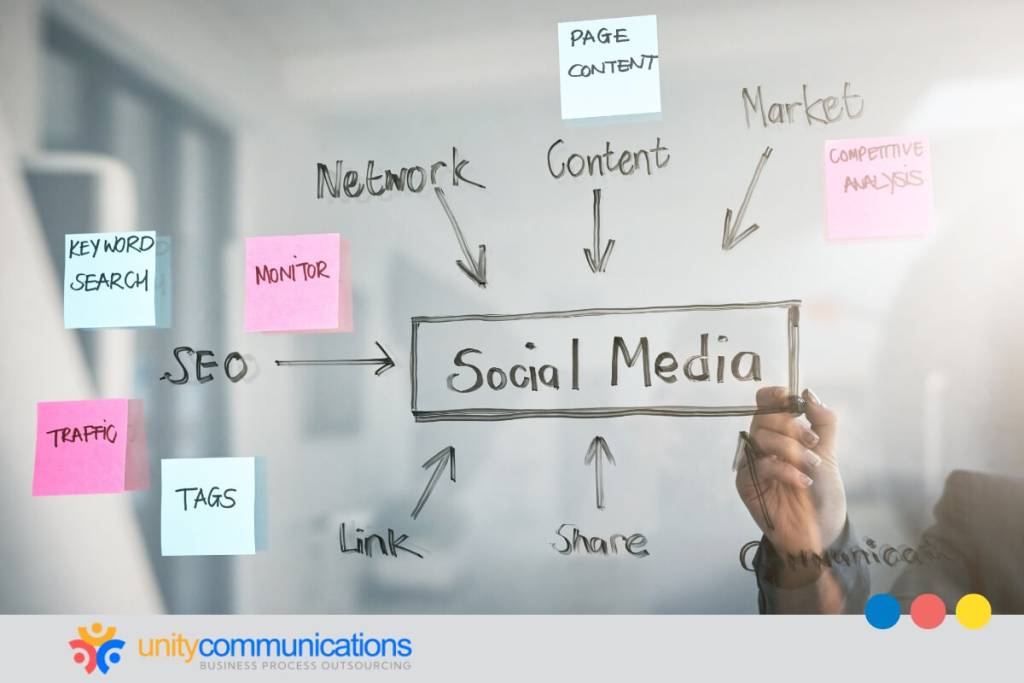Table of Contents
As the demand for sustainability increases, organizations must learn to integrate renewable energy into operations. The question is: how?
One strategic approach is business process outsourcing (BPO). Leveraging external expertise accelerates the transition to clean energy, optimizes costs, and enhances operational efficiency.
This article examines the rationale behind outsourcing renewable energy initiatives. Read below to discover its primary benefits, potential challenges, and best practices. At the end of the article, you will know how BPO makes your business more sustainable.
Why companies outsource renewable energy projects

As renewable energy demand surges, companies are turning to outsourcing to manage complex, large-scale projects efficiently and cost-effectively. Outsourcing in renewable energy involves delegating critical functions like engineering, procurement, construction management, and support services to specialized third-party experts.
This approach gives companies access to global expertise, reduces overhead, improves scalability, and keeps them focused on their core mission. From wind turbine maintenance to solar farm data analysis, third-party providers bring experience, efficiency, and cutting-edge tools that internal teams may lack.
Key benefits of outsourcing for renewable energy projects
Renewable energy projects have become essential for sustainability as you face mounting pressure to reduce carbon emissions. Adopting clean energy helps you meet regulatory requirements and enhances your brand reputation. Studies also show that renewable energy sources can reduce energy expenses by up to 30%.
However, high upfront costs, regulatory complexities, and a lack of in-house expertise often hinder adoption.
What is BPO’s role in this situation? Outsourcing renewable energy initiatives gives you access to industry experts, cutting-edge technology, and efficient energy management solutions. Outsourcing services assist with project planning and management, regulatory compliance, and performance monitoring that reduce costs and optimize efficiency.
Here’s a closer look at its benefits:
1. Financial efficiency
Outsourcing green energy projects can reduce capital expenditures while optimizing long-term energy management. Implementing them in-house often requires substantial infrastructure, technology, and personnel investments.
By working with external providers, you can improve cash flow and support sustainability as it turns significant upfront costs into easier-to-manage ongoing expenses. Outsourcing firms also leverage economies of scale, bulk purchasing power, and established supplier networks to secure cost-effective energy solutions that might be inaccessible.
Beyond initial savings, outsourcing mitigates the financial risks of fluctuating energy prices, regulatory fines, and energy consumption inefficiencies. Expert providers monitor market trends, optimize energy procurement strategies, and use advanced energy-saving technologies to provide the best return on investment.
2. Support for corporate sustainability goals
Outsourcing renewable energy initiatives helps you achieve corporate sustainability goals. Embracing clean energy is a significant challenge due to procurement complexities, changing regulations, and increased pressure for carbon reduction.
Outsourcing provides access to experts who can accelerate your switch to renewable energy and help you reach sustainability goals, such as carbon neutrality and net-zero emissions.
Even without in-house development, BPO providers can adopt innovative energy solutions, such as AI-driven energy optimization and decentralized renewable grids. They can also secure green certifications and submit sustainability reports that boost investor confidence and brand reputation.
A recent study shows that sustainable companies outperform non-sustainable competitors by 4.8%, reinforcing the benefits of prioritizing sustainability. Outsourcing renewable energy programs drives more profits and customers by letting you lead in the global push for decarbonization.
3. Accelerated innovation adoption
Outsourcing green energy projects hastens the adoption of cutting-edge innovations without the burden of extensive research, development, and in-house expertise. Technologies for renewable energy sources are rapidly evolving, with energy storage, smart grids, and AI-driven solutions transforming how you generate and consume power. However, staying updated on these breakthroughs requires significant investment and expertise, which you might lack.
Specialized energy providers allow you to use the latest technologies to remain competitive and relevant. Examples include:
- Next-generation battery storage
- Predictive energy analytics
- Decentralized renewable systems
Outsourcing firms work with tech developers, experts, and policymakers to help businesses adopt advanced solutions more quickly. This boosts energy efficiency and gives you an edge in industries where using green tech early sets you apart.
With global investment in clean energy technologies surpassing $3 trillion in 2024, outsourcing helps you innovate while positioning you as a global leader in a low-carbon economy.
4. Regulatory intelligence and compliance
Environmental compliance is complex for the following reasons:
- Energy or environmental laws vary significantly across regions.
- Frequent updates to policies, incentives, and emission standards are complicated to track and implement.
Outsourcing renewable energy initiatives can help you navigate legal requirements, secure government incentives, and avoid costly penalties. It can also align renewable energy projects with local and international mandates, such as carbon reduction targets.
Outsourcing firms also handle compliance reporting, energy audits, and certification processes so you can meet industry standards with minimal internal effort. Their proactive approach reduces legal and financial risks, enhances corporate reputation, and demonstrates your commitment to responsible and compliant energy practices.
5. Brand differentiation
Outsourcing renewable energy initiatives can differentiate your brand, positioning you as a leader in corporate responsibility and environmental impact. Various stakeholders favor businesses that genuinely commit to environmental stewardship.
By partnering with experts, you can:
- Implement sustainable programs cost-effectively, whether reducing your carbon footprint, getting green certifications, or participating in clean energy programs.
- Respond faster to sustainability trends and regulations.
- Integrate renewable energy into product or service offerings.
These boost credibility and help you stand out in industries where sustainability matters most.
Additionally, BPO providers can communicate environmental efforts more strategically through ESG reporting, renewable energy certifications, and public relations highlighting their contributions. These strengthen brand reputation, enhance customer loyalty, and attract green investors.
As more companies integrate renewable energy, you can better stand out with a third-party firm’s innovative, large-scale sustainability solutions.
6. Enhanced energy resilience and risk mitigation
Outsourcing renewable energy programs enhances energy resilience and mitigates risks by ensuring access to stable, diversified, and strategically managed energy sources.
You can depend less on traditional power grids and fossil fuels and rely more on a BPO provider’s green energy. It also diversifies your sources, minimizing the operational impact of blackouts, fuel shortages, or geopolitical instability.
Outsourcing partners also perform advanced energy monitoring, predictive analytics, and real-time optimization. You can better anticipate and respond to fluctuations in energy demand, avoid inefficiencies, and comply with evolving regulatory requirements.
With a BPO team’s expert knowledge and technology, you can create a more resilient energy strategy that supports sustainability goals, long-term operational stability, and cost predictability.
Common outsourcing challenges in renewable energy projects

With 90% of executives citing sustainability as a priority, leveraging BPO for renewable energy can accelerate the transition to cleaner operations. Despite its benefits, this approach can still pose challenges. Here’s how you can address them.
1. Vendor reliability and performance risks
One problem of outsourcing renewable energy initiatives is ensuring vendor reliability. The success of an outsourced energy project depends on the service provider’s expertise, experience, and commitment.
Failing to meet expectations due to financial instability, technical shortcomings, or poor project execution can lead to inefficiencies and cost overruns. Holding vendors accountable for promised energy savings, operational efficiency improvements, or regulatory compliance without a transparent contract is also tricky.
Conduct thorough due diligence when selecting BPO vendors, and writing a contract that defines performance metrics, service-level agreements (SLAs), and contingency plans can prevent you from entering into underperforming partnerships. It also ensures the projects deliver the expected value.
2. Regulatory and contractual complexities
Outsourcing green energy projects involves complicated regulations and contracts. Laws can vary across countries and undergo frequent updates, making adherence challenging.
Partnering with a provider adds another layer of complexity. Contracts require long-term commitments, intricate pricing structures, and performance guarantees.
Poorly negotiated agreements can lead to financial penalties, a lack of flexibility, or even legal disputes if expectations around energy savings, sustainability targets, or regulatory compliance are unclear. A BPO company’s compliance is also necessary to claim government incentives.
To mitigate these risks, work with legal and energy experts to draft contracts that promote transparency, flexibility, and accountability.
3. Hidden costs and financial risks
Although outsourcing renewable energy initiatives can reduce capital investments, poorly designed contracts can introduce hidden costs and financial risks. You might encounter unexpected service fees, maintenance costs, contract renegotiation charges, or penalties for early termination.
Some providers might include pricing models tied to energy market fluctuations, which could lead to higher-than-anticipated costs over time. Without including cost expectations and performance guarantees in the agreements, you risk inefficiencies and miss out on savings.
Lastly, long-term outsourcing contracts might lock you into less favorable agreements as technology advances or energy prices change.
In addition to conducting due diligence, establish transparent pricing models and include flexibility clauses to help you maximize favorable market conditions and technological advancements.
4. Integration challenges
Integrating outsourced renewable energy initiatives with your processes is time-consuming, labor-intensive, and prone to errors. Your established energy management systems, operational workflows, and technological frameworks might not seamlessly align with outsourced solutions.
Compatibility issues in grid connectivity, data management, and real-time energy monitoring might require additional investments in system upgrades or modifications. Additionally, coordinating internal teams and external providers can create communication gaps, leading to delays or inefficiencies in implementation.
Overcoming these challenges includes working closely with your outsourcing partner to ensure technical compatibility, providing employee training, and establishing collaboration and system maintenance protocols.
Proper planning and coordination are key to achieving a smooth transition and maximizing the impact of outsourced green energy programs.
Best practices for outsourcing renewable energy projects

You need a strategic and well-managed approach when outsourcing renewable energy initiatives to maximize their benefits and avoid inefficiencies, compliance risks, or missed opportunities.
Here are the best practices when outsourcing renewable energy projects.
1. Conduct thorough provider selection and due diligence
Selecting the right outsourcing partner is crucial for the long-term success of renewable energy initiatives because these projects rely heavily on precision, compliance, and long-term reliability.
Conducting due diligence can determine whether the partner is reliable. Here’s how to do it:
- Assess vendors based on their experience, certifications, industry reputation, and past projects.
- Know whether the BPO provider has the financial means to sustain long-term commitments and adapt to market fluctuations.
- Review their technologies, such as smart grid integration, predictive analytics, and renewable energy storage solutions.
- Verify that the BPO company meets local and international energy regulations, environmental standards, and data security protocols.
- Gather insights from previous clients to gauge reliability, service quality, and responsiveness.
After confirming a provider’s capabilities, it’s essential to set the partnership up for long-term success. This starts with clear expectations, strong governance, and aligned incentives.
2. Define clear contracts and performance metrics
Detailed, transparent contracts prevent misunderstandings, drive accountability, and support long-term collaboration.
It includes:
- SLAs define performance benchmarks such as uptime guarantees, energy output targets, and response times.
- Key performance indicators (KPIs) establish metrics for efficiency, carbon footprint reduction, cost savings, and project timelines.
- Penalty clauses and incentive schemes impose fines for non-compliance and incentives for exceeding performance targets.
- Intellectual property and data ownership protection disclosures outline ownership of proprietary technology, energy consumption data, and analytics insights.
Once you’ve chosen a capable partner, it’s time to lock in the details. Clear contracts and measurable goals are the foundation of a successful, accountable partnership.
3. Ensure seamless integration with existing systems
Outsourced renewable energy solutions must integrate smoothly with your infrastructure to prevent operational disruptions.
Here’s how to do it:
- Align outsourced solutions with your existing energy management system and Internet of Things (IoT) platforms.
- Improve the teamwork between internal teams and outsourcing partners to streamline system adoption and minimize downtime.
- Establish standardized data exchange protocols to facilitate real-time monitoring and decision-making.
- Collaborate with the BPO company to align technology, data sharing, and operational workflows.
Even the best outsourcing plan can fail without smooth integration. Making new solutions work seamlessly with your existing systems ensures stability and long-term success.
4. Monitor performance regularly
Continuous oversight is essential to track progress, identify inefficiencies, and produce long-term improvements.
Some of the best practices include:
- Use AI-powered analytics to track real-time energy consumption, efficiency gains, and sustainability impact.
- Conduct periodic assessments to verify that outsourced providers meet contractual and regulatory obligations.
- Maintain open lines of communication with third-party partners to discuss challenges, adjust strategies, and explore new opportunities for optimization.
- Implement a centralized dashboard that consolidates data from all outsourcing partners to give your team real-time visibility into KPIs.
- Schedule joint performance reviews to collaboratively analyze results, address bottlenecks, and update goals.
Outsourcing isn’t a set-it-and-forget-it strategy. Regular performance tracking keeps projects on course and uncovers new ways to boost efficiency and value.
5. Practice stakeholder engagement and internal collaboration
Involve internal stakeholders in the outsourcing process, including sustainability teams and operations managers. Aligning internal and external efforts contributes to a cohesive strategy and maximizes long-term value.
Key actions include:
- Engage sustainability, procurement, and operations teams in BPO company selection and ongoing management.
- Work with local authorities, environmental agencies, and community stakeholders to ensure compliance and social responsibility.
- Educate employees on outsourced renewable energy initiatives to drive internal support and adoption.
Internal alignment and external engagement go hand in hand. The more buy-in you build across all levels, the stronger and more sustainable your outsourcing outcomes will be.
When these best practices work together—rigorous vendor selection, clear contracts, seamless integration, continuous monitoring, and strong stakeholder engagement—they create a solid foundation for success.
The bottom line
Outsourcing renewable energy initiatives accelerates hitting your sustainability goals and improves energy management. With external expertise, you can enhance energy resilience and stay ahead of regulatory shifts without diverting focus from your core operations.
Outsourcing helps renewable energy companies meet ambitious goals while staying lean, agile, and competitive. With careful planning, a strong governance framework, and the right partners, outsourcing can unlock innovation and accelerate the transition to a cleaner energy future.
Do you want to outsource your green energy projects today? Let’s connect today.




